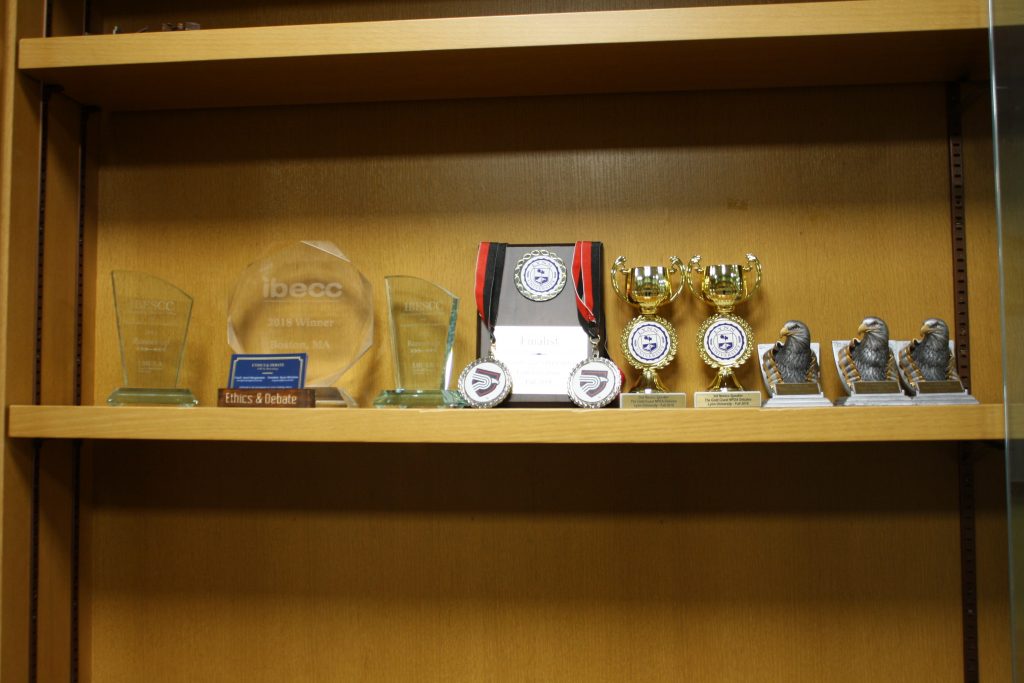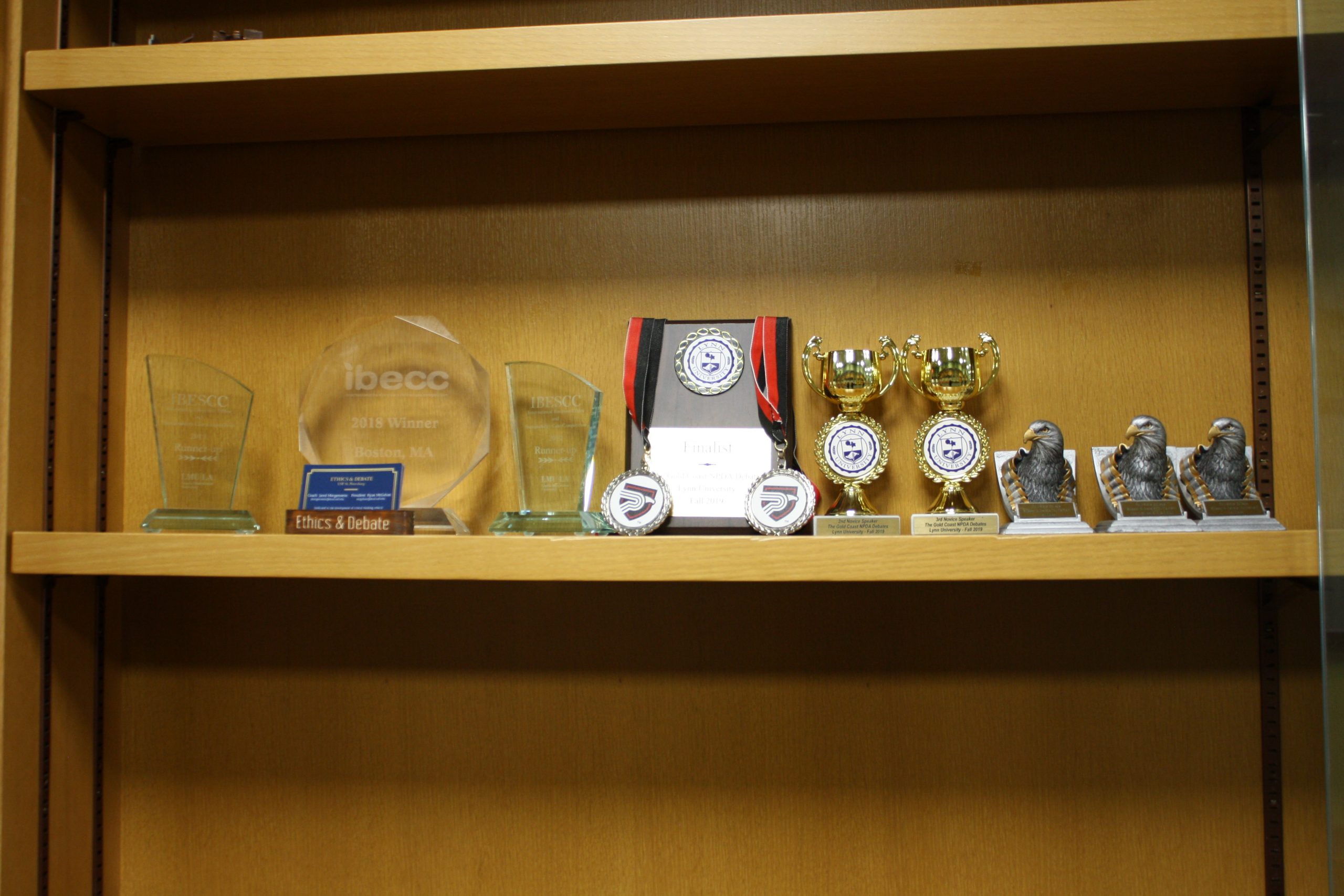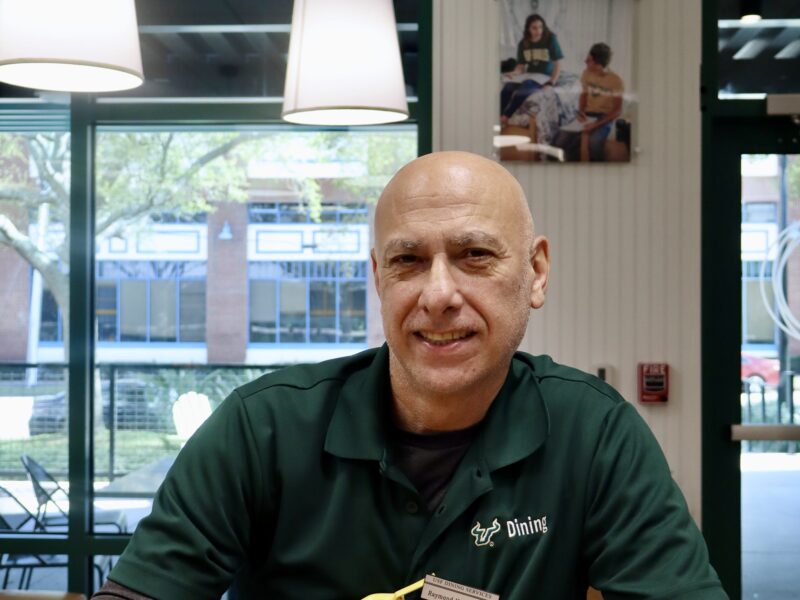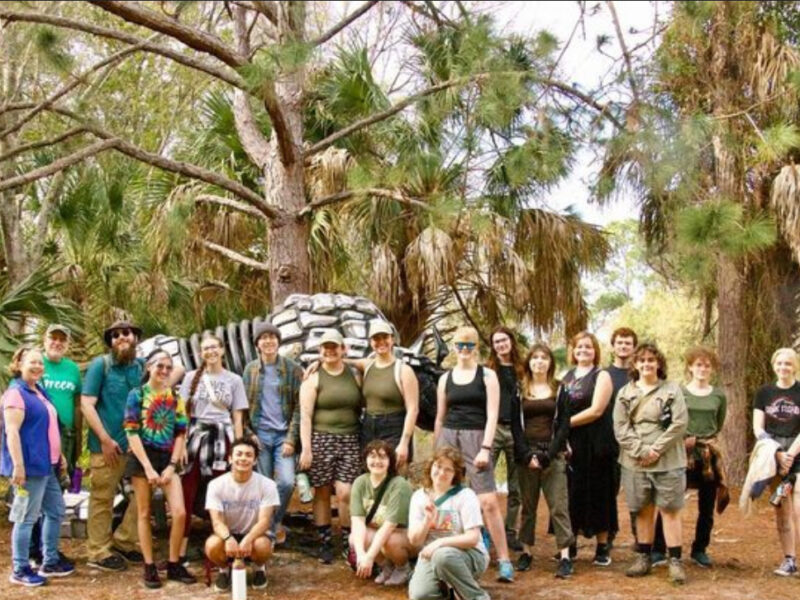
Story and photo by Savannah Carr
Members of the Ethics and Debate team say it is an academic competition club that brings home the most trophies, yet the team receives the least amount of funding.
The club started in 2015 as a group that focused on ethical issues but recently switched gears to include a debate component. Now that it has established a reputation for itself, club members are seeking more financial support from Student Government.
“Originally, we were just interested in Ethics Bowl events,” said Ryan McGahan, the team’s former president. “Then we wanted to expand because there wasn’t a debate team on campus here or in Tampa.”
Each fall, the ethics side of the team competes at the Southeastern Regional Ethics Bowl. In the spring, the team travels to two international competitions — one in Boston and the other in Los Angeles.
Last year, the team placed second at the International Business Ethics and Sustainability Competition in Los Angeles.
At the debate team’s competition on Feb. 8, Jonathan Hatzistefanou won top novice speaker and third overall speaker. Julia Linkogle and Hatzistefanou also qualified for semifinals.
The student organization had two teams at the parliamentary debate competition last semester. One team won first place and the other second.
“They brought home the trophies and I took them, brought them to Student Government and said, ‘Look at these trophies. Can we have some money?’’’ McGahan said.
In fact, the only trophies in the Bayboro Hall trophy case are from the Ethics and Debate team.
“We’re winning a lot of competitions,” said Tijen Jones, the team’s president. “The funding we are getting doesn’t necessarily equate.”
Struggling for funding
Until last semester, the team received $5,000 in funding from Northwestern Mutual, but after a change to the company’s donation policy, the funding was cut.
“We used that funding as a seed to raise more to get to $10,000,” McGahan said. “When they would see $5,000 of $10,000 already reached, they would pitch in.”
Now that their biggest donor has backed out, other donors are following suit.
However, the team did receive around $1,100 in funding from Student Government’s special funding committee, which usually covers one-time expenses — just enough to get the team to the international competition and the spring parliamentary debate.
“Right now, our coaches aren’t being paid,” Jones said. “They are just all volunteering. We have to pay for gas, airline tickets and hotels. There are a lot of expenses people don’t think about.”
The team is applying for an annual budget this semester, which is allocated by SG from student Activities and Services fee revenue.
“We’re looking for anyone who is willing to pitch in just a little,” Jones said.
Another issue the team faces is its categorization. According to Jones, the team is considered a club but should be labeled as an academic team.
“There is no other team like us on this campus,” Jones said. “A lot of other colleges have (a team) and the other colleges have an amount of funding that can be given.”
Anyone can join the team, and general meetings are every Monday from 5 to 7 p.m. in the University Student Center’s Coral Room.
“When we meet every Monday, we play some games, have a discussion,” McGahan said. “Just a lot of hanging out. It’s way more informal than the name makes it sound.”
Each meeting is run by the member who presents the group with a topic. The group does not debate the topic chosen, but rather discusses different opinions and viewpoints.
“Monday meetings can range from just five people to 17 people sitting down and having a conversation,” Jones said. “It’s very free-form.”
News editor James Bennett III contributed to this report.



